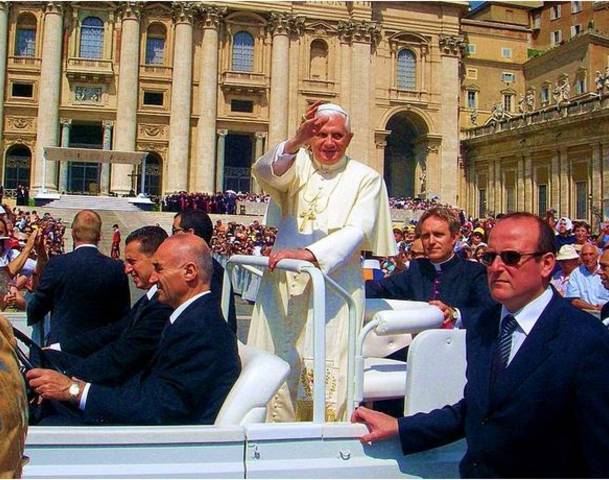Benedict Breaks Silence, but Does That Help?
By Mike Sarzo
Pope-emeritus Benedict XVI broke a months-long silence Tuesday kept since he left the papacy back in February in order to defend the Catholic Church’s response to child sexual abuse scandals that has roiled the world community for years. In a letter he wrote to well-known Italian atheist and author Piergiorgio Odifreddi, Benedict denied personal responsibility for the scandal surrounding a potential cover up of wrongdoing by priests. “I never tried to cover these things up,” Benedict wrote. Regarding the scandal and the negative press the church faced as a result, the former pontiff said the church had to bear responsibility. “That the power of evil penetrated so far into the interior world of the faith is a suffering that we must bear, but at the same time, we must do everything to prevent it from repeating,” he wrote. However, instead of citing new ways in which the church could own up to and combat the abuses and strive to prevent such abuses in the future, Benedict copped out. “The percentage of priests who commit these crimes isn’t any higher than the percentage of other similar professions,” Benedict wrote. “One shouldn’t present this deviation as if it were something specific to Catholicism.” That misses the point, which is the church has rightly received intense scrutiny for abdicating its responsibility in rooting out and stopping the abuse. Before he was pope, the former Cardinal Joseph Ratzinger led the Vatican’s Congregation for the Doctrine of the Faith and was responsible for handling abuse cases. In that role during 2001, he instructed bishops to send cases to his office rather than allow them to reshuffle priests accused of sexual abuse to avoid church trials. In 1988, he asked the Vatican’s legal team for faster ways to remove priests accused of abuse but was denied because it didn’t allow the priests to defend themselves. Due process of law is of paramount importance in any criminal trial, as an accusation doesn’t mean that anyone is necessarily guilty. Any trial must include fact-finding, presenting evidence, cross examination and findings of guilt or lack thereof. From that perspective, the church is right to not remove someone merely accused of a crime without due process having taken place. Where the church fell short is preventing priests who were accused of sexual abuse from being around children or being in the same congregation where they are accused of crimes. It’s similar to the mistake Penn State University made after then-graduate assistant Mike McQueary reported seeing former defensive coordinator Jerry Sandusky sexually molesting a young boy. Legendary coach Joe Paterno reported the incident to athletic director Tim Curley, but then didn’t bar Sandusky from using campus facilities, where the crimes he was convicted of took place. In fact, nothing was done, and Penn State paid for it. Ratzinger may not have been personally responsible for covering up priests who sexually abused children, either before or after he became pope, but like Paterno, he could have taken a much more proactive position that would have spared the church enormous embarrassment. As for the actual letter, since Benedict is no longer pontiff, his ability to directly affect church policy is officially nil. He still casts a large shadow over the church, but can’t formally change things in the Vatican. As for whether or not the wounds from the sexual abuse scandal can heal, the letter itself does little. The only way to ensure that the church doesn’t further damage its reputation is for the church to take aggressive steps to stop abuse in its tracks, prosecute abuse when it does happen and provide reparations to those who were harmed, directly or otherwise. The church very clearly wants to put the scandal behind it, but unless it begins to take corrective steps quickly, it won’t have a prayer.
|
.
Any original material on these pages is copyright © BishopAccountability.org 2004. Reproduce freely with attribution.
